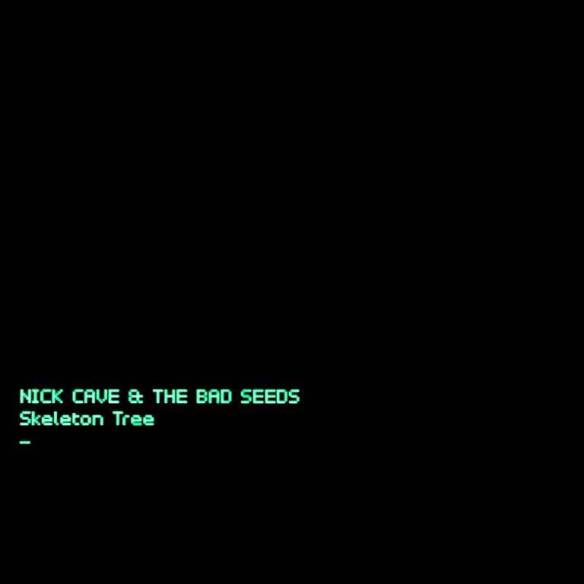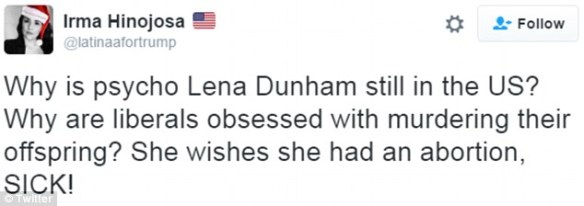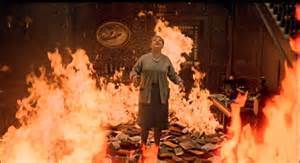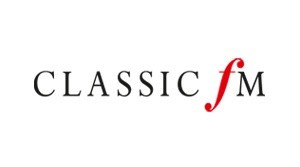
So, 2016 then. Everybody begins everything they say now with the prefix “So …”, as if perhaps what they’re about to say is a continuation of a previous statement, but actually isn’t. I can’t be the only person to have noticed this. You hear correspondents doing it when asked to comment on the news. You hear contestants doing it when they’re asked to describe the dish they’re about to prepare on Masterchef. Young people seem unable to start a sentence without it. It’s a tick; more like a punctuation mark than a word – a deep breath if you like. Like “like” it has crept into common verbal usage (you’ll note that nobody uses it in written text) and it means literally nothing, as with so much in contemporary dialogue.
So … it was way back in that prelapsarian age that was the second week in January when Squeeze, a band whose original members are around 60 years old, used a performance on the BBC’s Andrew Marr Show to protest against fellow guest, then-Prime Minister David Cameron.
They changed the lyrics of hit Cradle to the Grave to sing the line: “There are some here who are hell bent on the destruction of the welfare state,” with that preening waste of space Cameron watching. Glenn Tilbrook also slipped in the line: “I grew up in council houses, part of what made Britain great.”
It did not bring down the venal Tory government. In fact, the Tory government continued to destroy the welfare state, along with much else when it held a referendum without at any point thinking through what might happen if the British public voted “Non!” to staying in the European Union. Cameron did way more than kill the welfare state, he sleepwalked the electorate into an abyss, and then resigned five minutes after the votes had been counted so that he could spend more time with his money. The political picture has largely been dominated by quitting, and not quitting in the case of Jeremy Corbyn, who is Westminster’s mystery man. They seek him here, they seek him there. I stuck with him for way longer than he deserved, if only to disavow his fellow Labour MPs who sought only to stab him in the back while Rome burned all around them. It has been a shoddy display from them all.
You’ll note that 10 January, the day Squeeze made their valiant protest, is also the day David Bowie died, and with him, the universe. This year has been fucking awful. From Brexit to Trump, via Brietbart, post-truth, alt-right, fake news, black lives not mattering, saying that ice cream is gay, and acts of terror that almost became business as usual amid more unexpected deaths of the supremely talented than any other in living memory, the only response to the passing of 2016 is to say, “Fuck you!”
So, here are my books of the year.







What was once a refrain has hardened into a truth. Most of my reading happens between the covers of the New Yorker magazine, which has the temerity to arrive on a weekly basis on my doormat (and which feels even more vital since Trump was voted in). However, a nice man at the Mail on Sunday called Neil took it upon himself to send me three books to review in 2016, all of which I enjoyed. They are almost half the books I read. Of the other four, two are by people I know, but both stimulating in their particular fields. And the sixth and seventh are by people who write for the New Yorker, with roots in work they did for the New Yorker: Jeffrey Toobin and Clive James (one of the chapters in the delightful Play All is reprinted verbatim from the New Yorker).
I almost wrote a cover story for Radio Times, but – typically for 2016 – it was rightly superseded by a last-minute tribute to Victoria Wood, who had died. Interestingly, they left Peaky Blinders on the cover in the Midlands, and here it is.

Which takes us to the best telly. With Telly Addict cancelled by the Guardian in April, and revived by UKTV in June, I have spent a lot of the year watching television professionally. And these have been my personal TV shows of the year. Firstly, in pictures.
































And here they are, in pointless list form.
1. The Crown, Netflix
2. Fleabag, BBC3/BBC Two
3. Versailles, BBC Two
4. Westworld, Sky Atlantic/HBO
5. The Young Pope, Sky Atlantic/HBO
6. Masterchef: The Professionals/Celebrity Masterchef, BBC Two
7. Line of Duty, BBC Two
8. Dickensian, BBC One (cancelled by idiots)
9. Happy Valley, BBC Two
10. The Missing, BBC Two
11. The People Vs. OJ Simpson: American Crime Story, FX/Fox
12. Peaky Blinders, BBC Two
13. Trapped, BBC Four
14. The Great British Bake Off, BBC One
15. Gogglebox/Gogglesprogs, Channel 4
16. The Code, BBC Four/ABC
17. National Treasure, Channel 4
18. First Dates, Channel 4
19. Modern Life is Goodish, Dave
20. The Night Of, Sky Atlantic/HBO
Oh, come on. It’s self-evident from here that these brilliant shows could be in any order:
Game of Thrones, Sky Atlantic/HBO
Thirteen, BBC3/BBC Two
The A Word, BBC Two
The Knick, Sky Atlantic/Cinemax (season two aired at the end of 2015, but early 2016 here)
Deutschland 83, Channel 4
Mr Robot, Universal/Amazon Prime
Planet Earth II, BBC One
Taskmaster, Dave
Grayson Perry: All Man, Channel 4
Billions, Showtime, Sky Atlantic
Ballers, Sky Atlantic/HBO
Hypernormalisation, BBC iPlayer
The Durrells, ITV
Last Week Tonight with John Oliver, Sky Atlantic/HBO
Hillsborough: The Truth, BBC Two (updated after the inquest verdicts)
Brief Encounters, ITV (cancelled by idiots)
Rillington Place, BBC One
Parks & Recreation, Dave (ended in 2015 in the States, but this year, here)
Victoria, ITV
NW, BBC Two
Ripper Street, Amazon Prime/BBC Two
And a special nod to Escape to The Country (BBC One/BBC Two), the show whose 15 series exist forever on a loop, providing harmless dreams to people in towns and cities. Also, Top of the Pops (BBC Four), whose interrupted loop continues apace, racing through 1981 and 1982 this year, and giving constant pleasure to the musically disillusioned.


So … from music on TV to the best LPs. Like books, a finite field.












It’s been a slow year for albums. Once again I’ve relied on 6 Music and Later for information and inspiration, with the added input this year of subscriptions to both Mojo and Uncut, whose compilations have been a source of joy, and helped create this Top 12 in no order. No single album put all the others in the shade, but without C Duncan’s A Midnight Sun (and his previous album Architect, which we only cottoned on to this year; likewise Julia Holter’s Have You In My Wilderness), Radiohead’s A Moon Shaped Pool and Black Star by David Bowie, a few car journeys would have been less enjoyable. Nick Cave’s beautiful, personal, dissonant dirge Skeleton Tree was hard to listen to, and hard to stop listening to. The Kills did it again. And Kate Tempest’s Let Them Eat Chaos has proven impossible to listen to on headphones while simultaneously reading, as it demands your full attention. I like that about it. Dickensian was my favourite TV score LP of the year (the show sadly cancelled), and A Tribe Called Quest’s We Got It From Here … comeback the only hip-hop record I’ve listened to from one end to the other.
For self-evident reasons, I spent much of my waking life listening to film scores, old and new, and doing so has brought peace to my soul. If you’re interested in my Top 10 Film Soundtracks of 2016, and my Top 10 Videogame Soundtracks of 2016, click on these Classic FM links.
Now, my other day job: films.












I’m always torn as to whether or not to put my favourite films in a numbered list. It always seems so arbitrary. My ongoing system is this: I put an asterisk next to every film I see that’s in some way exceptional, and of the 223 films I’ve seen for the first time in 2016 (not all of them films released in 2016), around 80 are starred, although my Top 10 was easy enough to cordon off. The bulk of the films I see as a rule are in English, but the ones that often stand out and stay with me are not. Six out of the Top 10 are English-language (one of them, The Witch, in 17th century English); the others are not. It’s good to see so many unfamiliar names of directors so high up; I don’t believe I had ever typed Grímur Hákonarson, László Nemes or Robert Eggers in previous years, and they made my Top 3 films – and two of those are debuts! Pete Middleton and James Spinney, who co-directed the unique Notes on Blindness, a stunning film, don’t have Wikipedia entries, and neither does their film. I have to say, without Curzon cinemas and, more pertinently, Curzon Home Cinema, this list would be considerably less colourful and varied.

1. Rams | Grímur Hákonarson (Iceland/Denmark)
2. Son of Saul | László Nemes (Hungary)
3. The Witch | Robert Eggers (US/Canada)
4. Spotlight | Tom McCarthy (US)
5. I, Daniel Blake | Ken Loach (UK/France/Belgium)
6. Rogue One: A Star Wars Story | Gareth Edwards (US)
7. Mustang | Deniz Gamze Ergüven (Turkey)
8. Embrace of the Serpent | Ciro Guerra (Colombia/Venezuela/Argentina)
9. The Clan | Pablo Trapero (Argentina)
10. Notes on Blindness | Pete Middleton, James Spinney (UK)
11. The Childhood of a Leader | Brady Corbet (UK/France)
12. Fire at Sea | Gianfranco Rosi (Italy)
13. Life, Animated | Roger Ross Williams (US)
14. Hail Caesar! | Joel Cohen, Ethan Coen (US)
15. The Survivalist | Stephen Fingleton (UK)
16. Victoria | Sebastian Schipper (Germany)
17. Arrival | Denis Villeneuve (US)
18. I Am Not a Serial Killer | Billy O’Brien (Ireland/UK)
19. Paterson | Jim Jarmusch (US)
20. Chi-Raq | Spike Lee (US)
21. The Revenant | Alejandro Gonzalez Iñárritu (US)
22. The Hateful Eight | Quentin Tarantino (US)
23. I Am Belfast | Mark Cousins (UK)
24. Wiener-Dog | Todd Solondz (US)
25. Cemetery of Splendour | Apichatpong Weerasethakul (Thailand)
26. Sully | Clint Eastwood (US)
27. Julieta | Pedro Almodóvar (Spain)
28. Green Room | Jeremy Saulnier (US)
29. Things to Come | Mia Hansen-Love (France/Germany)
30. Room | Lenny Abrahamson (Ireland/Canada)
Thanks to my continuing tenure at the helm of Saturday Night at the Movies on Classic FM once again I was lucky enough to speak at length to these people about film music this year.



It has been a terribly busy year, and I did not get out to art exhibitions. Which makes Georgia O’Keeffe at Tate Modern a rare and thrilling treat. In the perfect pairing below, you can see O’Keeffe’s painting of the same Manhattan view captured in a photograph by her then-husband Alfred Stieglitz, one of the many illuminations in the way the exhibition was laid out.


I went to the theatre twice and loved both productions I saw.

Hangmen at the Wyndhams in London’s shittering West End by Martin McDonagh (whose film In Bruges I loved), a terrific black comedy about the last days of hanging, with David Morrissey as Britain’s last hangman, now running a boozer. The cast was further ennobled by Craig Parkinson, Andy Nyman, Johnny Flynn and Sally Rogers, and newcomers Bronwyn James and Josef Davies – not to mention the ingenious set. Because I know David and Craig, I met them for a drink afterwards in a theatre hangout and bathed in the cast’s glow. It must be tough doing the same thing at the same level of intensity every night. Mind you, they may not have any lines to learn, but we must give thanks to the dancers from Matthew Bourne’s company who threw themselves hither and thither in the name of bringing that beloved Powell and Pressburger film-about-a-ballet The Red Shoes to Sadlers Wells and turning it back into a ballet-about-a-ballet. This was our Christmas treat. It may not have been Christmassy – in fact, as you may know, it’s a tragedy – but it lit advent up all the same. I love watching dance. It’s not just the sight, it’s the sound of their physical exertion that makes it so special. Watching it on telly just doesn’t capture it. 
In terms of live entertainment, I was privileged to see Billy Bragg and Joe Henry premiere their Shine A Light album at St Pancras Church in London in August. It’s a fine item to own, but seeing and hearing it essayed up close and personal was a rare pleasure. I’ve hosted a number of panels and Q&As, which means I was lucky to meet a whole host of interesting people in the arts: James Buckley, Paul Kaye, Louise Emerick and Ken Collard from the Dave sitcom Zapped; Maxine Peake and the original stars of The Comic Strip Peter Richardson and Nigel Planer for their latest escapade Red Top, also featuring Stephen Mangan and Eleanor Matsura; plus, the entire cast and crew of Peaky Blinders on two occasions: at the press launch and at the BFI (greedy!), an association with an ongoing show that I’ve loved being an ephemeral part of.

It was a hell of a year. Enough to turn your hair grey. George Michael, Liz Smith and Carrie Fisher finished off the year in the manner in which it began. I was glancing down the UK “trending” topics late on Christmas Day and felt warm inside when I double-checked that all ten were related to telly programmes, on the telly. No capital cities, no celebrity names, no hashtags that began with #PrayFor. I went to sleep before 11pm satisfied that we’d made it through one day at least without the death knell tolling. I woke up on Boxing Day to the news that George Michael had been found dead, alone, at his home, the previous afternoon.
Feast, if you can, on all the amazing art and culture that was produced by the still-alive in 2016. It has to give us hope that perhaps the human race en masse isn’t hellbent on self-destruction, just a toxic few.
I am slightly fearful of pressing the “PUBLISH” key with three days left to go. But nobody ever won Masterchef that way.

Inevitable Postscript: Debbie Reynolds, died a day after her daughter, on December 28, aged 84.









































